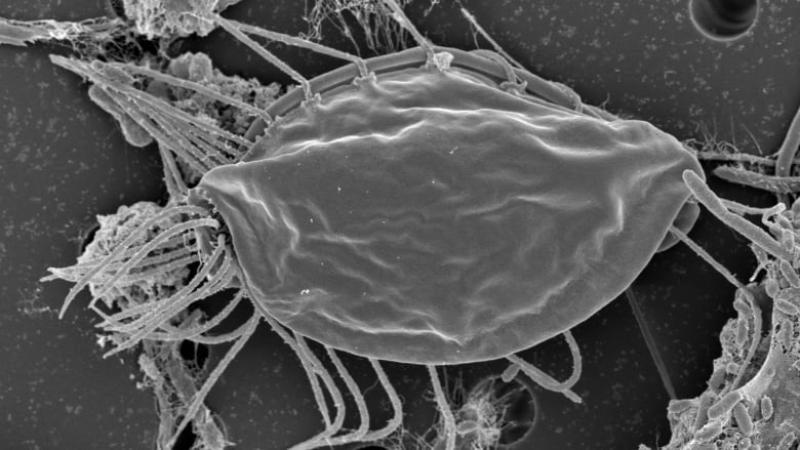Rare microbes lead scientists to discover new branch on the tree of life



Canadian researchers have discovered a new kind of organism that's so different from other living things that it doesn't fit into the plant kingdom, the animal kingdom, or any other kingdom used to classify known organisms.
Two species of the microscopic organisms, called hemimastigotes, were found in dirt collected on a whim during a hike in Nova Scotia by Dalhousie University graduate student Yana Eglit.
A genetic analysis shows they're more different from other organisms than animals and fungi (which are in different kingdoms) are from each other, representing a completely new part of the tree of life, Eglit and her colleagues report this week in the journal Nature .
"They represent a major branch… that we didn't know we were missing," said Dalhousie biology professor Alastair Simpson, Eglit's supervisor and co-author of the new study.
"There's nothing we know that's closely related to them."
In fact, he estimates you'd have to go back a billion years — about 500 million years before the first animals arose — before you could find a common ancestor of hemimastigotes and any other known living things.
read more https://www.cbc.ca/news/technology/hemimastigotes-supra-kingdom-1.4715823
 Article is LOCKED by author/seeder
Article is LOCKED by author/seeder

Now that this scientist is basically breeding these hemimastigotes they are able to determine what they eat ( bacteria ) and produce enough to get enough genetic material to test.
There is nothing currently alive that matches their genetic code back to 500 million years?
What would a Creationist say?
Maybe, "WTF took ya so long ta find this ? "
lol
Thet would say something along the lines of "God did it and evolution is 'pseudoscience."
Read this story a couple of days ago, amazing that in this day and age we're still making important discoveries like this.
I think as we progress with our technology and understanding of the world around us, we're be making lots of these kinds of discoveries
WHile hundreds of miles inland from the oceans
and deeper than 2 miles down, microscopic worms were recently discovered where salt water was leaking into the gold mine shafts.
Saw it on the Discovery channel last week when they were talking about life on Mars...
Let's hope we continue to make amazing discoveries.
You'll get no argument from me.
Octupus and cephalopod DNA has a high degree of uniqueness, with estimates as high as 23% suggesting that they survived one of the pre Cambrian life extinction events.
Likewise the microscopic tardigrade is the recognized leader of unigue DNA enabling it to survive freezing & boiling temperatures.
and it's so darn cute as well.
I remember Neil DeGrasse Tyson mention these creatures on Cosmos. I think they are capable of surviving in space as well.
Interesting you should mention that as it was a giant version of this critter that initially drove the spore drive used in the Star Trek Discovery series
I haven't seen Discovery. It looks too JJ Abra-hamy to me, lol
Lol not really sure what that means (was he one of the writers or something?). Anyway the first season was kinda meh, but the second season was enjoyable.
SP apologies in advance for going off-topic here
It's a reference to the JJ Abrams Trekverse reboot. Discovery seems stylishy similar, and not like how the original series was.
While the Tardigrade has 17.5% unique DNA, scientists aren't quite as sure about the Octupi and cephalopod and are no longer sure about the DNA of these critters
as they can apparently change their own RNA at will, which is a much neater trick.
They no longer need to evolve versus adapt and overcome...